Support our diverse communities by buying tickets from the ALSO HEARTS raffle fundraiser! Tickets are available until July 31st, 2025.
Support our diverse communities by buying tickets from the ALSO HEARTS raffle fundraiser! Tickets are available until July 31st, 2025.
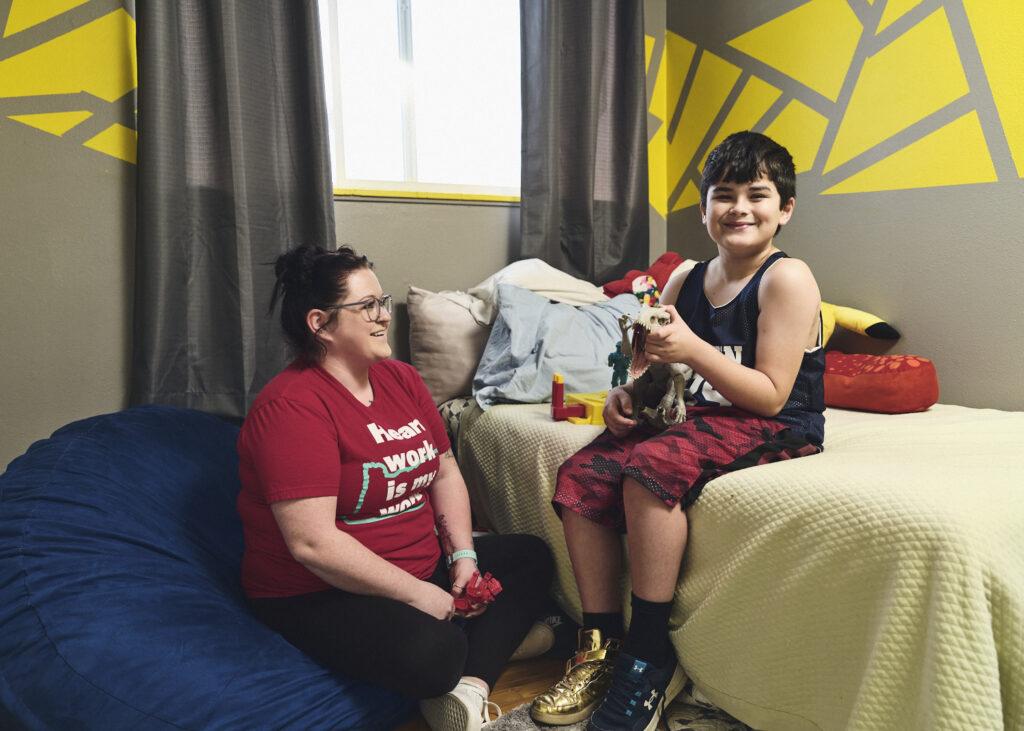
“It takes a village to raise a child.”
You’ve heard that saying dozens of times. Why? Because it’s true. And it’s especially true for families of children with developmental or intellectual disabilities, whose children (and the rest of the family) need additional support and structure.
But the “village” isn’t easy to find. Even well-meaning friends and family member don’t have the professional knowledge, training, and resources to support children with disabilities and their families in a healthy and safe way. Luckily there are professionals who can help, like the Children’s Support Professionals (CSPs) at ALSO. “We’re a resource,” says ALSO Behavioral Specialist Sunny Ellis. “We bring more people to the table—people who are motivated and invested to help your child succeed.”
Engaging with Children’s Services can also help your entire family, especially parents of children with disabilities. “It allows the parent to take on the role of parent and less of the caregiver/professional,” says Sarah Scassellati, another Behavioral Specialist at ALSO. “You can be mom and dad and have that support for your child, but also that support for yourself.”
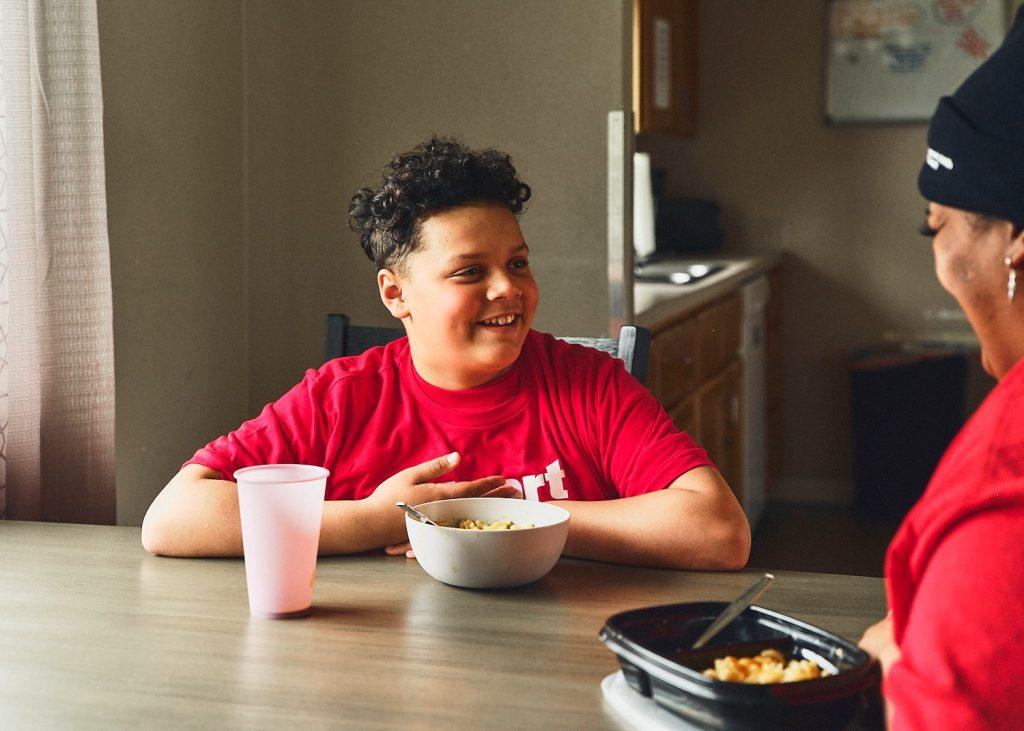
If you haven’t benefitted from Children’s Services yet, you’ll need to begin by applying to Oregon Department of Human Services Intellectual and Developmental Disabilities Services (ODDS). You can find an application at your county’s Community Developmental Disabilities Program (CDDP). Find a list of CDDPs here.
If your child is eligible for Intellectual/Developmental Disability Services, a county services coordinator will assess your child’s needs, and then send referral packets to different agencies like ALSO. “We’ll review them and based on the openings we have, we assess whether we have the capacity to accept them,” says Sarah. “We also make sure they’re a good fit, especially with residential services. Each home has two to three kids, so we want to make sure we match up kids who will enjoy each other’s presence.”
Once a referral is accepted, it goes back to the county worker, who will meet with the agency and the child’s family. Families typically meet with several different service providers before deciding which best meets their child’s needs.
The process can take a while, as the demand is great and the waiting list long. The pandemic didn’t help, either. “When COVID hit, many places had to close their doors or temporarily put a halt on bringing in new individuals,” says Sunny. “But don’t give up,” she counsels. “Be that squeaky wheel. Talk to your coordinator about the services you need and tell them that you continue to need them.” She suggests getting Family Support or a Wraparound coordinator involved. “Then you will have people who are on your side of the court, who will make sure you’re crossing your T’s and dotting your I’s, who will look out for any other unforeseen issues, and continue to advocate for those additional supports even prior to your child entering services.”
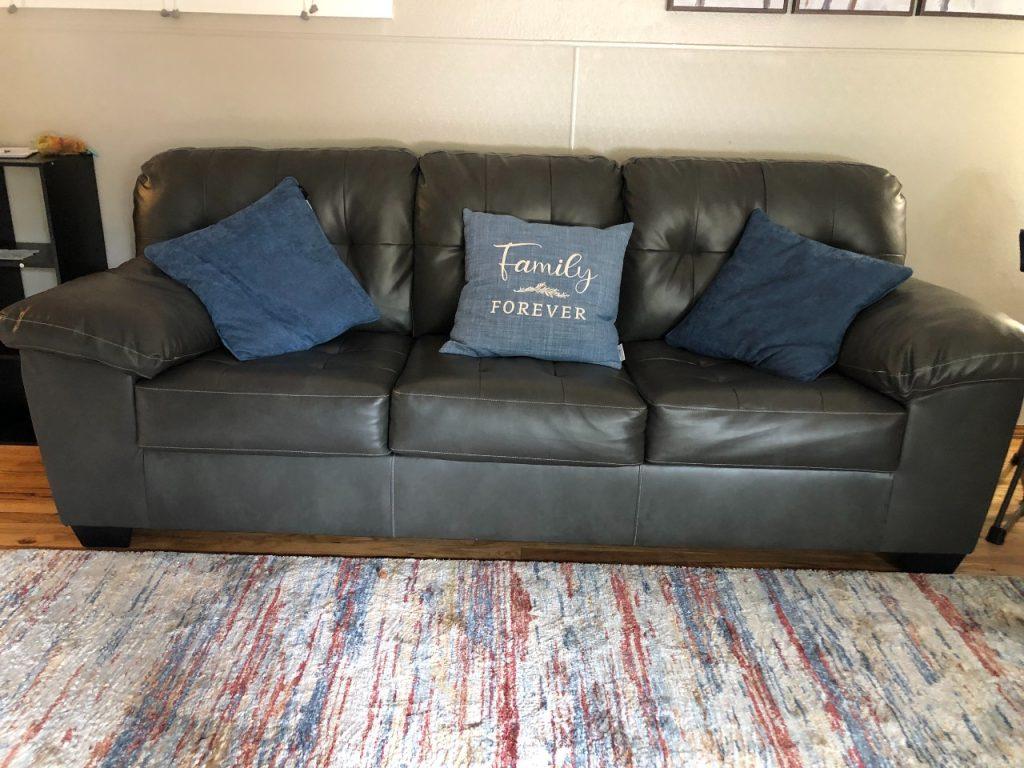
The ODDS website lists a variety of resources for eligible families of children with disabilities, including:
All these services exist to support families, not to usurp their rights. “These are not parents who have lost their parental rights or who can’t parent,” says Sarah. “These are parents who have been through a lot and have realized that for their kid to thrive, they need additional support. It’s almost a kind of co-parenting situation.”
ALSO, a nonprofit organization, offers both in-home support and 24-hour residential care. In-home support is exactly what it sounds like: extra help for children who need more attention and engagement. Professionals help children to build skills in the family home or out in the local community.
Residential care may be a good choice for children who need more structure or predictability than can be provided in the family home. “When you have a home with just one or two parents, it can be really challenging for families of children with higher needs,” says Sarah. “Whereas we (at ALSO) have a team of twelve to twenty. That allows us to be more creative.” For example, teams at residential houses can adapt environments to keep children safe or encourage them to build skills like self-regulation.
Families who partner with ALSO’s residential services are often surprised by their child’s accommodations. There may be additional supports, like a sensory rooms and visual reminders about house expectations tacked to the walls, but the houses are typical family homes with big backyards in residential neighborhoods. They’re designed with kids in mind: one house exhibits space-themed murals, while another boasts an air hockey table and retro arcade game. Children can also customize their own rooms. One of ALSO current residents has bright yellow stripes in his room for Pikachu, while another recently redecorated. “It used to be Spiderman-themed,” says Sarah, “but he’s moved on, so now everything is blue.”
There are many additional organizations that are dedicated to advocating and providing resources to families and children with disabilities, including:
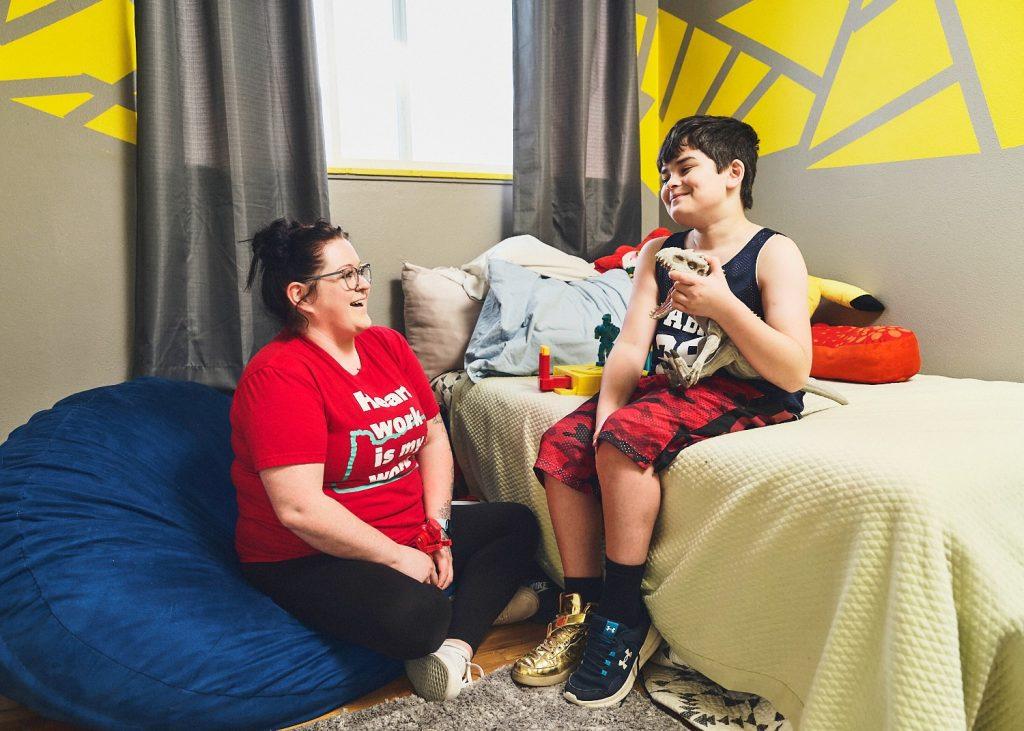
Families—and the child receiving services—work with ALSO behavioral specialists to establish goals, create a support plan that identifies the coping skills the child needs to reach their goals, and then work with the child to strengthen those skills.
“A lot of the skills our employees use can very easily be used by mom and dad as well,” says Sarah. And it can be helpful for children to get information from someone besides their parents. “We have one girl who loves her parents and her sister and brother, but like many teenagers, she is tired of hearing from them,” Sarah says. “But she’s also developed a really strong relationship with her DSP (direct support professional), who pretty much echoes what mom and dad are saying, but she (the resident) is more willing to try something with this friend who is not mom and dad.”
In-home services often work on goals in community settings. “It could be going out to the park and playing with other kids and practicing taking turns, and waiting in line, and using the slide safely,” says Sarah. “Or making choices whether to go to the mall or to the water park.” Children may also practice skills around the house, like cleaning their rooms, packing their lunches, or putting laundry away.
In residential care, the end-goal is often a less restrictive environment. Associate Director of Residential services Tanja Garrot says that since children are learning coping skills, the goal is a realistic one. “Children may be able to move to a foster home, or attain the skills needed so the family feels comfortable having them come home.”
The children enjoy successes along the path to their goals: big ones like graduating from high school, and smaller—but no less important— everyday successes. “Just a couple of weeks ago, one of the kiddos got really mad at mom and dad at their house and had to come home,” says Sarah. “He was really upset about that, but because he had the opportunity to come back to this home, he was able to calm down and tell a staff person why he was angry, and what he really wanted. Then he called mom and dad and they problem-solved in a way he couldn’t have done without that space from Mom and Dad.”
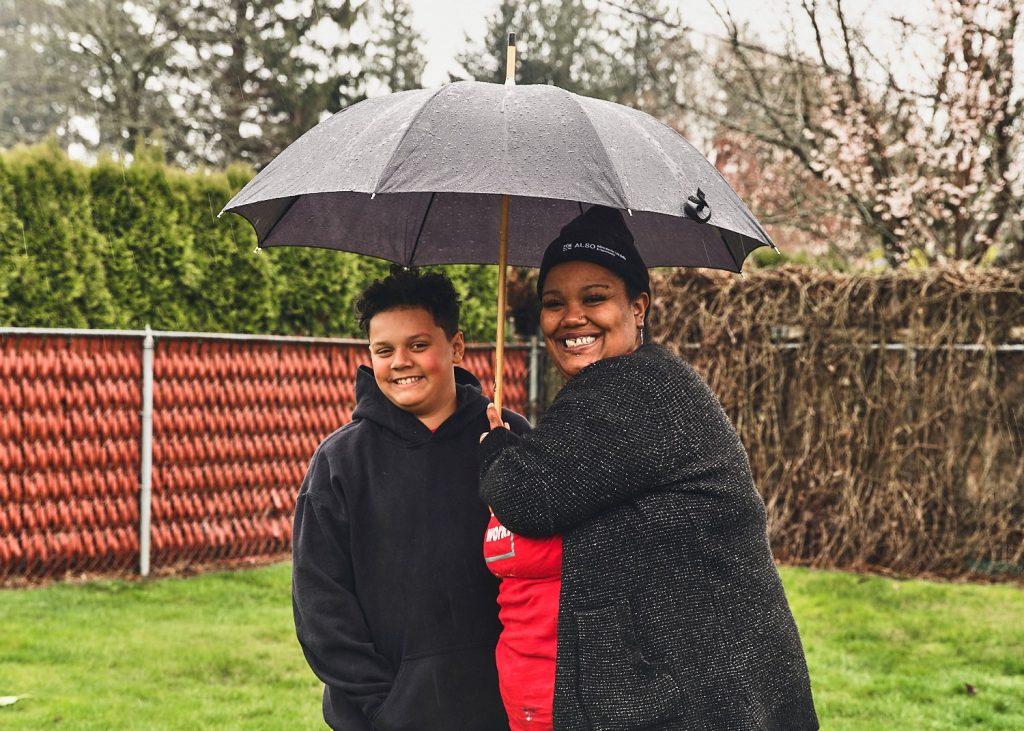
ALSO wants families to be as involved as possible. “We’re a problem-solving collaborative,” says Sunny. “But we are also flexible and understanding about the variety of families dynamics that we work with,” she says. “We also understand that continuing to strengthen natural support systems will be the best and most durable kinds of supports. Though we get to be a part of a family’s chapter, we are not writing their whole story.”
ALSO meets families where they are—often literally. “One thing I think we do very well is getting to know people,” says Sunny. “We want to really see who they are and work with them on their important goals for their children. And since ALSO serves people from all over the state, we’ll take a drive down to Bend or wherever so we can meet with families in person.”
It’s just one way ALSO demonstrates genuine compassion. Sunny believes that’s another thing that sets ALSO apart. “It’s not just talking the talk,” she says. “It’s walking the walk—actually following through with what we say we’re going to do, which doesn’t always happen with other providers.”
Sunny also believes that ALSO is the resource that families with children with disabilities need. “We are that village people talk about. We’re the community that shows up when folks need somebody who’s able to assist them, whether it’s 2:00 p.m. or 2:00 a.m. or in between. We provide that support, which can be so needed, especially to the families who may have been in crisis for quite a long time.”
We can be your village, providing you with the services that will help your child with developmental or intellectual disabilities grow, and your family thrive. Contact us today at info@alsoweb.org, or call us at 503-489-6565.

Sign up for our newsletter to get our latest news, content, and job opportunities.
Help us ensure that everyone has the same opportunities in their home, workplace and community. Let’s make dreams!
